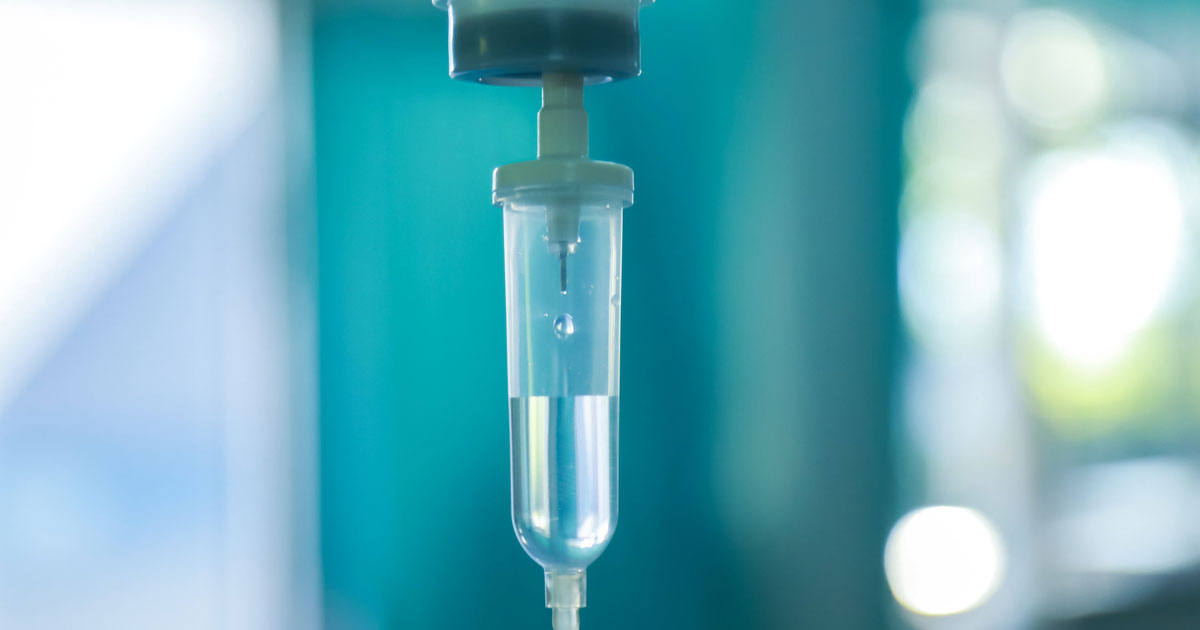 Photo from Getty Images
Photo from Getty Images
Originally Posted On: https://lilacrecoverycenter.com/blog/medical-detox-addiction-recovery/
Seeking treatment for substance use disorder is a crucial but often difficult choice. Treatment may require time away from work, responsibilities, and loved ones. It can also be daunting to face the stigma that can often be connected with recovery. Regardless of the challenges, however, they are more than worth finding the proper support to begin a recovery journey.
Recovering from substance use disorder (SUD) takes time, dedication, and preparation. It can also be taxing physically, as the withdrawal process often involves a host of side effects. Fortunately, there are treatment options available that can help alleviate some of the difficulties of withdrawal and make recovery more accessible. Medical detox is one important treatment step that can help individuals prepare for their substance abuse recovery journey.
Common Treatments for Addiction Recovery
Recovery experts have developed many different types of treatment for substance use disorder, and each may be suitable under different circumstances. In fact, it is especially important for each person to research the various types of SUD treatment to find a program type that works best for them. Some of the most common types of treatment include:
Intensive Outpatient Treatment Programs (IOPs)
There are various types of outpatient programs, but most are less intensive than an inpatient program. Still, an intensive outpatient program is capable of delivering many of the same treatments and therapies as an inpatient program while enabling participants to continue living at home during their treatment and attending treatment on days, evenings, or weekends. Many of the programs are structured so that patients are able to continue living their daily life with minimal interruptions.
Partial Hospitalization Programs (PHPs)
This is the most intensive type of outpatient program and takes place in a contained, structured environment, often a hospital or inpatient treatment center. However, individuals do not live at the facility but instead return home each day when treatment is finished. PHPs typically address a range of mental health issues in addition to substance use disorder and thus must provide professionals like addiction and trauma counselors, psychiatrists, and others to provide treatment.
Inpatient or Residential Treatment Programs
These treatment programs are at the highest intensity level and can take place in a hospital setting as well as in an inpatient center. Many patients that complete an inpatient program have other mental health diagnoses that make their substance use disorder more difficult. While completing a residential treatment program, patients live at the program facility full-time. This type of treatment typically incorporates a series of structured phases to assist with a full recovery.
Medication Assisted Treatment (MAT)
These programs are primarily for patients who struggle with the use of alcohol and certain drugs that can cause severe or dangerous withdrawal symptoms if use is ceased abruptly. During the recovery process, medication is provided to ease some of the symptoms associated with withdrawal and safely taper the patient away from use. MAT also employs diverse therapies and counseling alongside medication assistance for comprehensive treatment.
Lilac Recovery Center In San Diego offers luxury detox, residential and outpatient services for those who want to overcome their substance use disorder in a comfortable setting.
The Basics of Medical Detox for Addiction Recovery

Photo from Getty Images
Substance use disorder treatment can only proceed once the patient is no longer impaired by drugs or alcohol. However, the process of detoxing, or eliminating the toxic and harmful substances from an individual’s body, can cause severe side effects, especially if undertaken outside of a clinical setting. Some of the most common side effects and symptoms associated with withdrawal include muscle pain, trembling, nausea, insomnia, seizures, vomiting, and many more. Medical detox is a supervised detox treatment that aims to make the initial recovery process easier and less dangerous.
Individuals who choose to go through a medical detox will still face some uncomfortable symptoms of withdrawal, but with additional help. A team of trained medical professionals will oversee treatment and provide medications to help alleviate some of the most painful withdrawal symptoms. These programs may also include medications that block the effects of opioids, benzodiazepines, or alcohol to aid in the detoxing process and help prepare the individual for recovery.
When Is Medical Detox Needed?
While medical detox is a crucial step to recovery for many, there are several key circumstances when medical detox is necessary.
The Patient Has Co-Occurring Mental Disorder
Substance use disorder is a serious mental health condition in its own right, but it can be more difficult to manage for individuals who also have other mental health diagnoses. These could include depression, anxiety, and various mood disorders. These conditions present their own unique challenges and can make recovering from substance use disorder more difficult, particularly if an individual takes medication to treat their mental disorders. Medical detox can ensure that detoxing is achieved safely without any negative medication interactions or additional stress on existing mental health conditions.
The Patient Has Physical Comorbidities
Certain physical health conditions may also make the detox and withdrawal process more challenging. These conditions may weaken an individual’s body or immune system. When the process of withdrawal begins, their body may not be able to sustain normal functioning through the various side effects that may occur. Medical detox provides individuals with physical health conditions with the support and help they need to complete their detox safely.
The Patient Is Pregnant
Individuals who are pregnant and dealing with substance use disorders are in a unique and difficult position. Their bodies are facing monumental changes already, and withdrawal and recovery could pose a threat to their life or the life of the child. Medical detox helps these individuals begin their recovery journey while also ensuring that their child is as healthy as possible.
The Patient Has Had Past Withdrawal Experiences
Some individuals with substance use disorder have been through recovery programs in the past and have previously had a difficult withdrawal process. Withdrawals and detox can be an especially difficult physical ordeal for some people, with the side effects impacting them in a more serious way. For people who know that their reaction to detoxing will be more severe, medical detox is a way for them to avoid some of the more difficult aspects of their withdrawal.
The Patient Uses Multiple Substances
Substance use disorder can come in many forms. For some people, that may mean struggling with multiple substances at the same time. Various substances will impact the body differently, so the withdrawal process for each will present unique challenges. The assistance of trained professionals during a medical detox will help ensure that all withdrawal symptoms are managed safely.
The above circumstances often warrant a medical detox, but there may also be others. Medical detox has proven to be an effective part of the recovery process for people experiencing these circumstances and can be extremely beneficial for many others.
The Benefit of Medical Detox
The process of recovering from substance use disorder is one that takes time and perseverance. It also requires a great deal of reflection and self-assessment. These qualities can be difficult to muster, even under ideal circumstances. Attempting to tackle them while also experiencing the intense physical and mental symptoms of withdrawal can seem impossible, and many people attempting to detox on their own experience relapse.
Medical detox allows individuals recovering from substance use disorder to begin their journey on a more level playing field. Their physical symptoms will be easier to face, which can help them feel more prepared for the personal and psychological work that must be done. For individuals who aim to recover from their substance use, medical detox can be an invaluable process.
The primary benefits of medical detox include the following:
- Safety
- Reduced discomfort and withdrawal symptoms
- Reduced relapse rates as compared to detoxing at home
- Professional and peer-based support throughout the process
- Structure, which is useful as the patient continues through recovery
The Medical Detox Process
Facing the realities of recovery from substance use disorder can be daunting. However, not knowing what to expect when entering a treatment or recovery program can be just as intimidating. Fortunately, the medical detox process is very straightforward.
Individuals who complete a medical detox can expect a fairly standard process that includes an evaluation, stabilization, and preparation.
Initial Evaluation
The initial step of a medical detox is the evaluation. Each individual will meet with a treatment team to determine how their medical detox and ongoing treatment should be handled. In many cases, this evaluation will require the person to fill out a questionnaire, undergo blood and other testing, complete a screening for any other mental health disorders, and undergo evaluation for certain physical health conditions.
They will also likely meet with a therapist to assess their mental state and evaluate the challenges they would be able to manage during their recovery. In many cases, the presence or absence of the individual’s support system will also be evaluated. Once the evaluation is complete, the medical team will work with the patient to determine how to proceed.
Achieving Stabilization
Stabilization is often the most difficult step of a medical detox. This is when an individual will stop using any substances, including drugs and alcohol, and begin the detox process. Withdrawal symptoms will appear within a day or so, which can be both physically and mentally taxing. During stabilization, medications are administered and monitored by the medical team to ensure that the person’s detox is as safe and effective as possible. The included medications are intended to help ease withdrawal symptoms and make detox more manageable. This stage of the process can take several days to a few weeks, depending on the severity and duration of the individual’s substance use.
Preparation for Treatment
Once the process of detoxing has been completed, that does not mean that recovery is over. In fact, the real recovery process is just beginning. Depending on the program chosen, professional staff will need to work with the patient to transition to the treatment program. Detox presents many physical challenges, but the time following detox centers more on psychological challenges. This often includes beginning therapy, beginning the curriculum or program an individual is enrolled in, and joining a 12-step or another peer group. The help and guidance of the medical team can make this transition much easier.
What to Expect During a Medical Detox
Outside of the three major phases of detox, the process of completing a medical detox will be different for each person. An individual who has been misusing various substances for years will likely have a more difficult detox process than a person who has struggled with the use of a single substance for a short time. Regardless of the time and severity of a person’s substance use, however, every individual who completes a medical detox can anticipate physical and psychological impacts.
Facing the symptoms and realities of withdrawal is always difficult, even for those who have done it before. The assistance from medication and medical support will make it easier, but the withdrawal will still take a physical toll on the body.
Individuals can expect to experience the following:
- Nausea
- Vomiting
- Sweating
- Fever or chills
- Increased heart rate and blood pressure
- General aches and pains, particularly in the joints and muscles
- Fatigue
- Headache
- Shaking
It is important to remember that these symptoms will also exist when detoxing at home, but they will be more severe and can also include seizures, cardiac issues, and even death.
Detox can also be a psychologically difficult process for many people. The misuse of various substances is a way for some people to avoid facing difficult emotions, stress, or other circumstances. The medical detox process removes the substance as a way to self-medicate, numb, or distract from stressful situations, which may bring difficult feelings to the surface.
Recovery After a Medical Detox

Photo from Getty Images
Every person’s recovery journey will look different once they have completed a detox. The specifics of their treatment plan will be determined by their medical team and therapists and tailored to their specific needs, desires, and physical and mental health conditions.
A few common types of treatment included in recovery programs include:
Group Therapy or Counseling
Talking to and working with peers who are also in recovery can be a helpful tool. Individuals can share similar experiences, feelings, and concerns in a safe place with discussions facilitated by professionals to ensure that they are productive. These groups often help those in recovery feel less isolated.
Individual Therapy
Working with a counselor or therapist one-on-one is also an important step in the recovery process. These sessions allow individuals to examine their past and current circumstances to better understand what may trigger their substance use and how they can manage their substance use disorder moving forward. Common therapeutic practices for addiction recovery include cognitive behavioral therapy (CBT), psychoanalysis, dialectical behavioral therapy (DBT), eye movement desensitization therapy (EMDR), education therapy, psychodynamic therapy, and other forms of psychotherapy.
12-Step Programs
This is a useful tool both during and after time spent in a recovery program. These organizations, such as Alcoholics Anonymous or Narcotics Anonymous, can provide a supportive community for people recovering from substance use disorder while they are completing their program and as they transition back into society.
Holistic Therapies
Holistic therapies focus on the whole person as a way to enable individuals to address the multiple components of their person that contribute to substance use disorder. These therapies can also help impart more tools for use during stressful situations and when encountering triggers after treatment is complete. These may include art therapy, equine therapy, animal therapy, water therapy, music therapy, massage therapy, stress management, meditation and mindfulness, time spent in nature, and even exercise and nutrition education.
Workforce Training
Many programs offer vocational training alongside their recovery program. This helps individuals who are going through their recovery to develop skills and knowledge that they can use to find work after recovery. This training can help people recovering from substance use disorder find stability following a recovery program, which may help them avoid relapses in the future.
Luxury Opioid Detox in San Diego

The freedom to pursue recovery in a setting that feels like a luxurious resort with all the comforts of home rather than a sterile medical facility can make the process less daunting for many people. Lilac Recovery Center offers luxury detox for addiction in San Diego, and our comfortable, inviting setting can help people recovering from substance use disorder focus fully on their healing. If you or a loved one are struggling with substance use disorder and would like to learn more about the medical detox process, contact Lilac Recovery Center



